Review: Supporting characters steal the show in 'Captain Marvel'

It’s hard to boil down the essence of Captain Marvel‘s central character into a few words. Perhaps it’s because in the comics, the character was defined by the calamities that happened to her, rather than her actually driving the plot forward through her actions. It’s a similar situation here, where the most memorable parts of the film are about the plot foisting interesting situations on her, rather than Carol Danvers (the human identity of Captain Marvel) advancing the story because of her character.
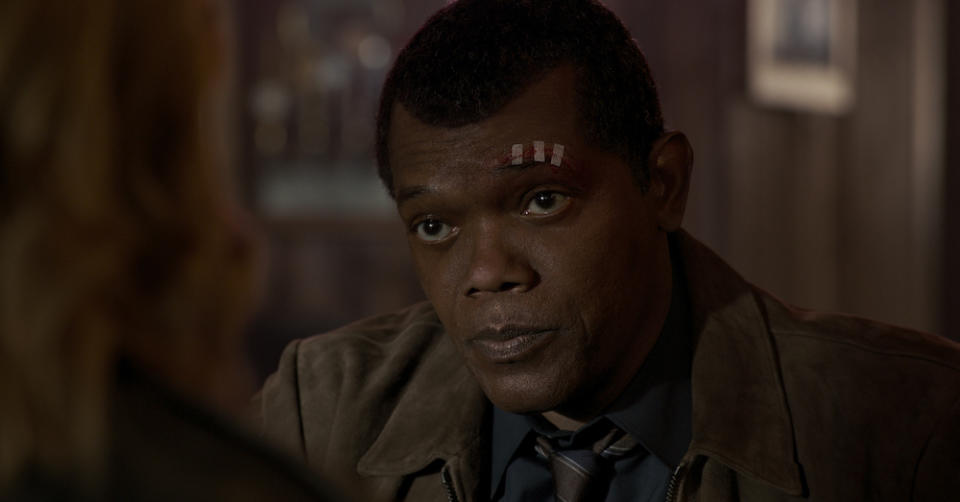
The movie is a story about lost and rediscovered identities, and showcases Captain Marvel’s adventures in the 90s, when she meets Nick Fury for the first time. It’s also ostensibly Fury’s first encounter with the superhuman element in the greater context of the Marvel Cinematic Universe (MCU), and sheds more light on his backstory. However, Captain Marvel is doggedly pursued by evil aliens from outer space, and her quest isn’t just about self-discovery, but power too.
Unfortunately, the title character is overshadowed by virtually every other supporting character. Like it or not, Brie Larson (Captain Marvel) doesn’t have the presence to stand on equal footing with Samuel L. Jackson (Nick Fury) and Lashana Lynch (Maria Rambeau). This speaks more to the quality of Captain Marvel‘s cast than Larson’s acting ability, since her characterisation as a brash, impulsive individual comes across well. However, the consequence is that Jackson and Lynch steal the scene every time they appear, when the focus of the film should be firmly on Captain Marvel herself.
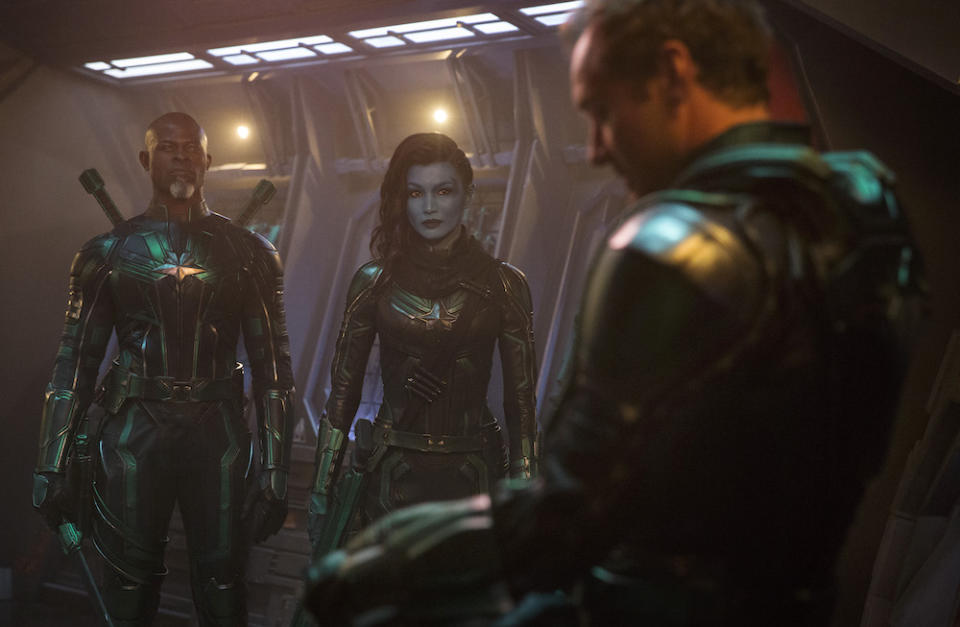
The biggest issue, however, is that the character we see at the end of the film is no longer the character we see at the beginning of the film in more ways than one. Usually, this is positive, since it implies character development and upgraded abilities. But in this case, the transition comes so abruptly that we don’t quite feel any tension for the character by the end, nor do we empathise with her.

Several plot points are also heavily telegraphed, so much so that the big reveals don’t really feel like reveals. Perhaps we’ve all grown used to the MCU formula (which is not a bad thing in and of itself), or perhaps there’s just too much meta-knowledge that heavyweight thespians are usually used for a very specific purpose in the MCU. Nevertheless, the plot does keep up at a fairly chipper pace, even if it doesn’t deliver anything surprising.
The de-aging effects are excellent for Nick Fury, as well they should be. But it’s clear that there wasn’t so much effort devoted to the de-aging effects for Phil Coulson (Clark Gregg), since he looks like a strange Ken doll next to a rather realistic young Nick Fury. Fans of Agents of Shield would probably be the most unsettled by Coulson’s artificially smooth and shiny visage, but it is a treat to see him finally return to the MCU. Perhaps this spells hope that the movie and television Marvel universes will finally intersect in a meaningful way.
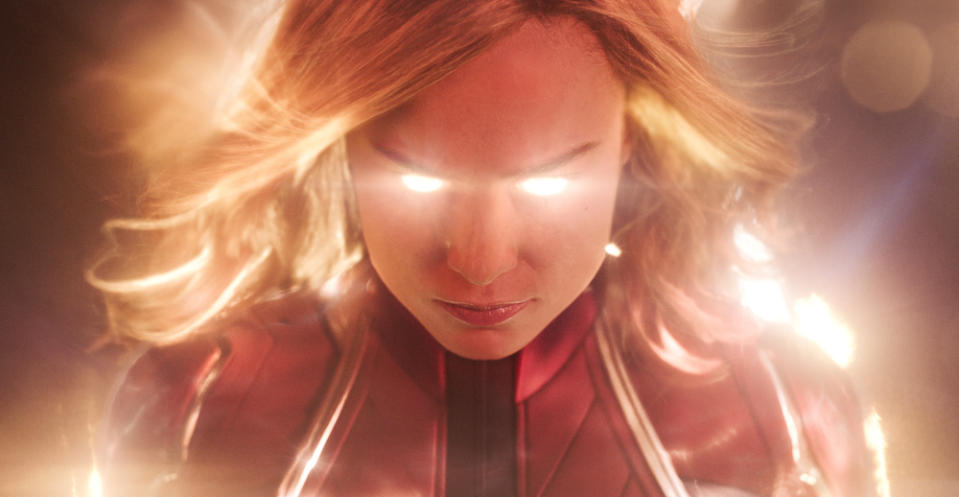
The ending sequence is a wonderful action set piece, and firmly cements Captain Marvel as the most powerful hero that the Marvel Cinematic Universe has to offer. If you’re wondering, yes, she’s clearly more powerful than Thor, and we already saw a huge boost in his power levels in Avengers: Infinity War.
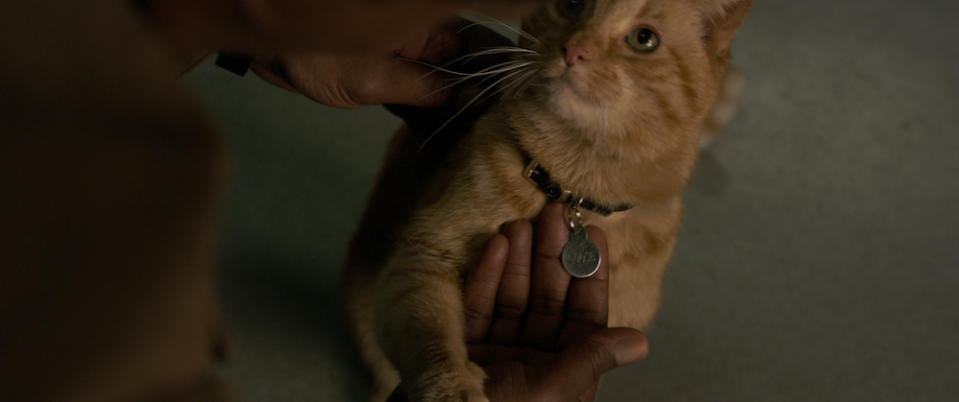
Captain Marvel’s metaphorical journey of discovering her identity parallels her physical journey, and it’s interesting to note how the different strands of the narrative all share the same sort of symbolism as the film progresses. It’s a nice piece of storytelling, and adds an extra oomph to what would otherwise be a rather straightforward tale. And if you’re wondering, some non-human characters also mirror Captain Marvel’s progression in terms of the progression of their abilities.

Captain Marvel is all right, and a decent entry in the MCU franchise. Perhaps if it had been written with an ensemble cast in mind, it would have been a more balanced and interesting film. As it stands, it’s worth watching, mainly as an appetiser before Avengers: Endgame.
Should you watch this at weekday movie ticket prices? Yes.
Should you watch this at weekend movie ticket prices? If you’re a Marvel fan.
Score: 3.4/5
Post-credits scenes: 2
Running time: 124 minutes
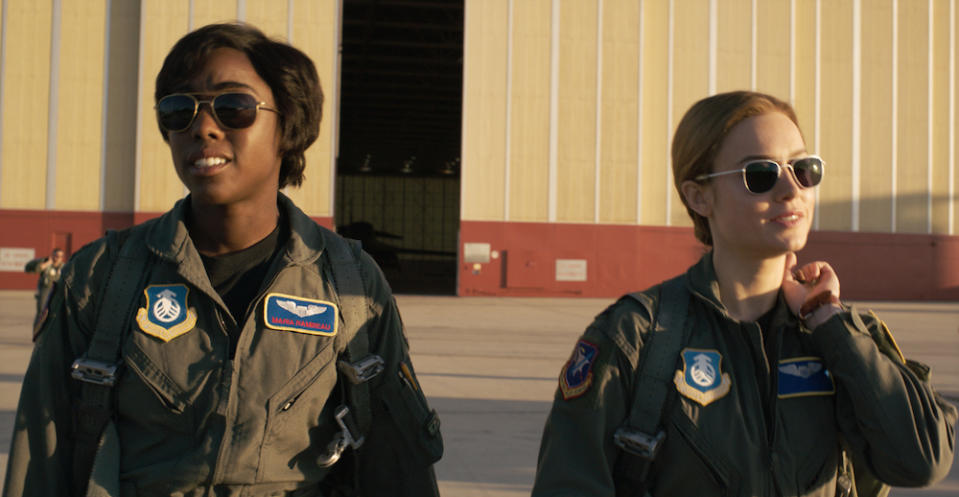
Captain Marvel is a superhero film that’s the 21st in the Marvel Cinematic Universe.
It tells the origin story of Captain Marvel, a powerful superhero who is embroiled in an intergalactic conflict that has spilled over to Earth. Along the way, she discovers that not everything is as it seems, including her mental and physical self. But with the help of old friends and new allies, she may very well prevail.
Captain Marvel is directed and written by both Anna Boden and Ryan Fleck, with writing credits for Geneva Robertson-Dwore, and story credits for Nicole Perlman and Meg LeFauve. It stars Brie Larson (Captain Marvel/Carol Danvers/Vers), Samuel L. Jackson (Nick Fury), Ben Mendelsohn (Talos/Keller), Jude Law (Yon-Rogg), Annette Bening (Supreme Intelligence of the Kree/Mar-Vell/Wendy Lawson), Clark Gregg (Phil Coulson), Djimon Hounsou (Korath), Lee Pace (Ronan the Accuser), Lashana Lynch (Maria Rambeau), Gemma Chan (Minn-Erva), and the cats Reggie, Archie, Rizzo, and Gonzo as Goose. It is rated PG-13.
Read also:
‘Avengers: Infinity War’ is the most complicated movie in history: Director Joe Russo
Review: ‘Avengers: Infinity War’ delivers payoffs for a sprawling cast of characters
Marcus Goh is a scriptwriter, having written for popular shows like “Lion Mums”, “Crimewatch”, “Code of Law”, “Incredible Tales”, and “Police & Thief”. He’s also a Transformers enthusiast and avid pop culture scholar. You can find him on social media as Optimarcus and on his site. The views expressed are his own.
Follow Yahoo Lifestyle Singapore on Facebook.


